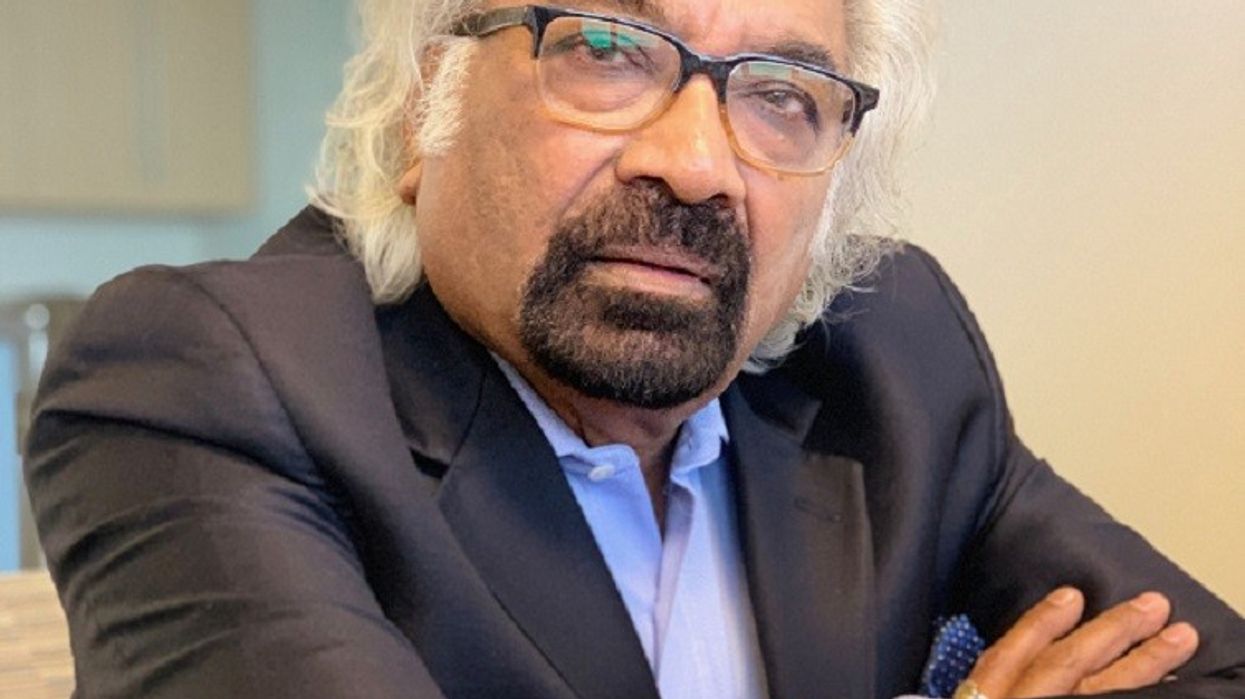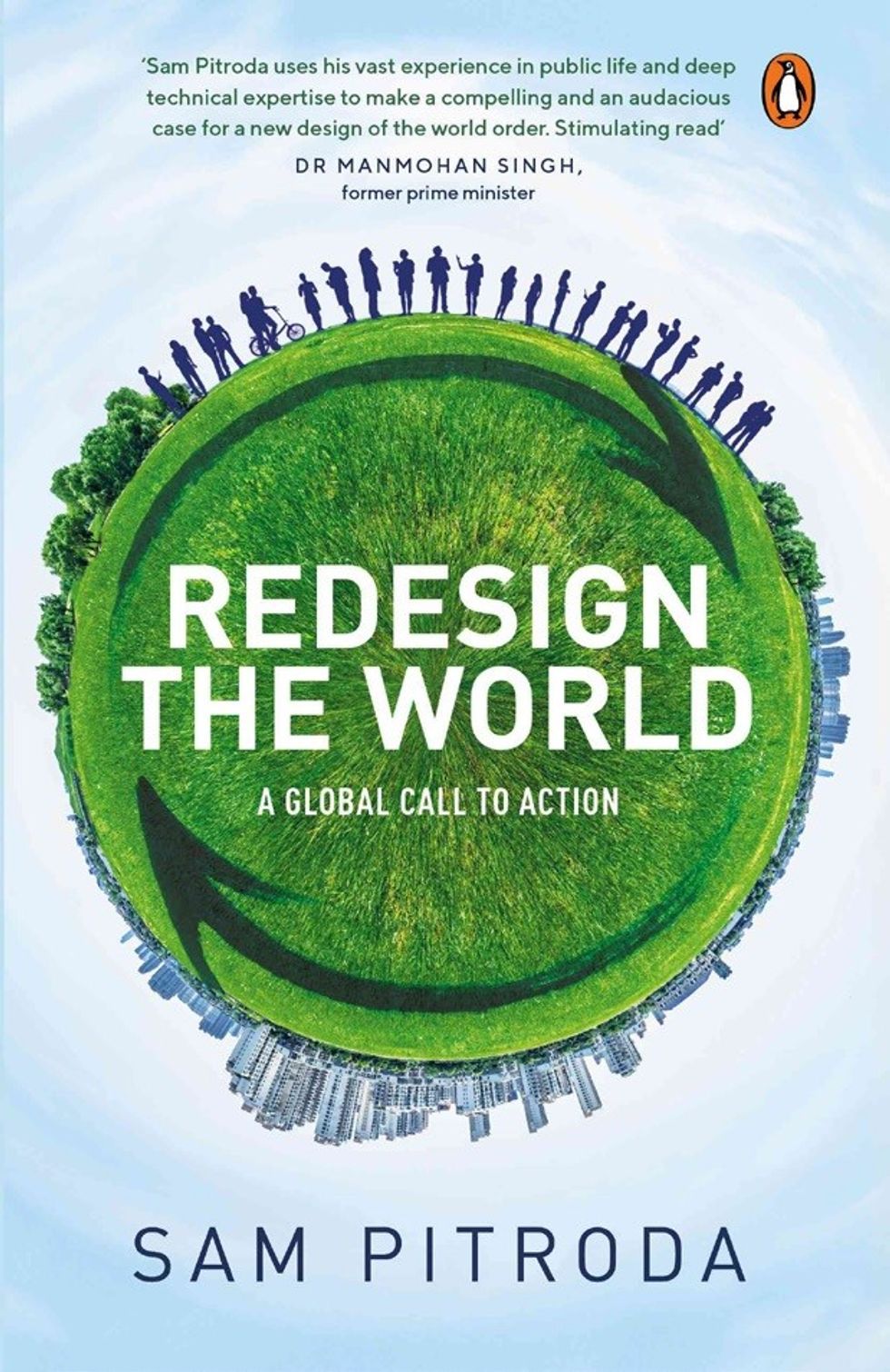By Amit Roy
AUTHOR Sam Pitroda is calling for a radical reform of major global institutions such as the United Nations, the World Bank, the International Monetary Fund, NATO and the World Health Organization due to “stagnation in their functioning”.
“These institutions have made significant contributions to keep peace alive, manage financial meltdowns, fuel growth, reduce poverty and develop nations, but over time, stagnation has set in in their functioning,” Pitroda says in his new book, Redesign the World: A Global Call to Action.
“For instance, cybersecurity is a new battleground that deserves global attention. It is time for the UN to set up an independent UN Cybersecurity Council and train a global cyber police force to help member states.”
Speaking from Chicago where he has been settled happily for 55 years, Pitroda reveals: “I had proposed this idea with a detailed plan a decade ago to Ban Ki-moon, when he was the UN secretary-general. As expected, it did not receive any response.
“We know the next generation of wars will be fought in cyberspace with digital attacks on governments, businesses, banks, stock markets, courts, elections and leaders. It will require agents who are specially trained in various new technologies and tools to guard national and global interests.”
The book, written during the past year of lockdown, is nothing if not ambitious. It is being launched in the US, the UK, India and other countries, and also being translated into several languages. “I wrote this book for a global audience,” he says.
But who is Sam Pitroda? His CV says he “is an Indian telecom engineer, inventor and entrepreneur. He is popularly known as the ‘father of India’s computer and IT revolution’ as he helped prime minister Rajiv Gandhi in bringing computerisation as his advisor. He was also an advisor to prime minister Dr Manmohan Singh.”
In 2017, he was appointed chairman of the Indian Overseas Congress.
Satyan Pitroda, known as “Sam”, was born in May 4, 1942 in Titlagarh, Odisha, to Gujarati parents. He did his schooling from Vallabh Vidyanagar in Gujarat and completed his master’s degree in physics and electronics from Maharaja Sayajirao University in Vadodara. In 1964 his life changed when he arrived in Chicago to do a master’s degree in electrical engineering from the Illinois Institute of Technology.
He recalls his own modest upbringing. His father was “basically a fourth-grade educated, small-time businessman. We were ordinary people. I had never used a telephone before coming to America because I never had one, and somebody who had a telephone was too rich to be my friend. I had never been to a five-star hotel in my life before coming to America. I had never seen television before because in 1964 there was no television in India. But we all got a good education. So I think education cannot be completely privatised. Similarly, health cannot be completely privatised and have a western model of insurance. I don’t believe in the insurance model.”
He feels “very comfortable” living in America. “I have had no problem at all in the last 55 years. This is my home. I can talk to anybody, relate to anybody, have not been discriminated against. I’ve just had a great time.”
But he points out: “My mind is Indian. My tools and management (style) would be western, but my soul is Indian.”
His daily routine is to get up at 6.30am, “make my tea, sweep my floor,” and then work from his office at home. “I’m on Zoom with people all over the world – Japan, Singapore, Mexico, Portugal, England, India, you know Baroda, Delhi, Mumbai…”
Spiritually, he has always been “Gandhian” – in fact, his book ends with a quote from the Mahatma, “In a gentle way, you can shake the world.”
But he is not religious in the conventional sense. Prayer, he says, “has been outsourced” to his wife. In lockdown he has made a point of cooking lunch. “Since I’m at home, I told my wife, ‘You have cooked all your life. Now I will cook.’ I make all kinds of food, Indian, Italian, you name it...”
Every week he has regular “thoughting” sessions with intellectuals across the world.
His main argument, developed in the book, is that the old world order, constructed in America’s image at around the time Pitroda was born, has been rendered obsolete by technological progress.
“For the first time in human history, all eight billion people are essentially connected by the internet, web, and mobile phones. Distance has disappeared... we now live in a hyperconnected world.
“Seven tipping points have profoundly changed the world in the past 75 years – decolonisation, the rise of China, the fall of the Soviet Union, the terror of 9/11, the rise of technology, increasing inequality and the Covid-19 pandemic.”
He proposes a “third vision” of the world, “one that puts the earth and all living beings at its centre. This vision is based on nation building, a network to increase understanding, enhance collaboration and build bridges to promote peace and prosperity for all.”
His “five pillars” for the world’s redesign include inclusion (“to strengthen and expand democracy”); human needs (“to enforce fundamental human rights”); a new economy (“to course-correct greedy capitalism”); conservation and sustainability (“to move from mindless consumption to sensible”); and non-violence (“to promote and practise non-violence at all levels”).
His book suggests a 10-point “global action” agenda: “Many leaders today are narrow-minded, parochial, divisive, self-centred, power-hungry, authoritarian and ineffective. They are focused only on their constituencies for immediate gains with an eye on the next elections. They are busy raising funds and hardly have time to serve people.”
He tells Eastern Eye what he thinks about the pandemic: “Covid reminds us that we are all interconnected, interwoven, interrelated and interdependent. Covid does not distinguish between rich and poor, urban and rural, Brahmin and Dalit, black and white. It has no nationality, it is all humanity. At the end of the day, only two things matter, planet and people. To me Covid-19 brings us to a tipping point.”
Covid has taken a heavy toll of his family in India: “I have lost several close relatives in the last 40 days.”
They include four first cousins, his father’s elder brother’s sons: Natoo Bhai Fulchand Pitroda and Chandrakant Fulchand Pitroda, both in Raipur, Chhattisgarh; Ratilal Bhuraji Pitroda and Kanti Bhai Bhuraji Pitroda, in Ahmedabad.”
“I have also lost Kanchan Pratap Panchal, my oldest sister’s daughter, from Amreli, who died in hospital in Baroda, and Sarswati Vallabh, daughter of Fulchand Pitroda, my cousin sister.”
A close friend who died of Covid was the former union minister Ajit Singh: “We went to college together at the Illinois Institute of Technology in Chicago. A friend of 55 years will be missed.”
Pitroda refers to his colleague, Rakesh, who helps run his office in Chicago: “He lost both his in-laws within one week. And he lost four other people in his family.”
He says: “You feel helpless. Let me tell you, you’re numb. You don’t know what to do. You don’t know where to go. You don’t know who to talk to, and you don’t know who to blame. It’s a total system breakdown. It is very sad situation for everybody in India.”
Redesign the World: A Global Call to Action by Sam Pitroda is published by Penguin.





